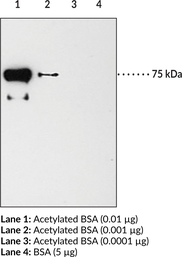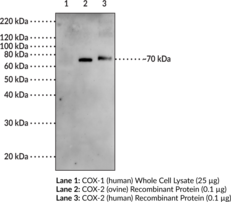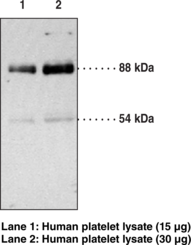Description
Lysine acetylation is an evolutionarily conserved posttranslational modification that is found in prokaryotes and eukaryotes at histone and non-histone protein sites.{53510} Transfer of an acetyl group from acetyl-coenzyme A (acetyl-CoA) to the amino side chain of lysine is catalyzed by lysine acetyltransferases (KATs), including 13 canonical KATs from the GCN5, p300, and MYST families. Acetyl lysine removal is catalyzed by two major groups of lysine deacetylases (KDACs), the zinc-dependent histone deacetylases (HDACs) and the NAD+-dependent sirtuin deacetylases. Histone acetylation is associated with active gene transcription, and dysregulation of histone acetylation is associated with various diseases including cancer, Huntington’s and Alzheimer’s diseases, and amyotrophic lateral sclerosis (ALS).{53511,53512,53513} Non-histone protein acetylation is linked to various cellular processes including autophagy, DNA replication, lipid storage, mitochondrial fission and fusion, and protein synthesis, among others.{53510} Cayman’s Acetyl Lysine Monoclonal Antibody (Clone 7F8) can be used for ELISA, immunocytochemistry (ICC), and Western blot applications.
Synonyms: ACE
Immunogen: Acetylated KLH
Formulation: 100 µg of ammonium sulfate precipitated antibody
Isotype: IgG1
Applications: ELISA, ICC, and WB
Origin: Animal/Mouse
Stability: 365 days
Application|ELISA||Application|Immunocytochemistry||Application|Western Blot||Product Type|Antibodies|Monoclonal Antibodies||Research Area|Cell Biology|Endomembrane System & Vesicular Trafficking|Autophagy||Research Area|Cell Biology|Mitochondrial Biology||Research Area|Epigenetics, Transcription, & Translation|RNA, DNA, & Protein Synthesis||Research Area|Epigenetics, Transcription, & Translation|Writers|Histone Acetylation||Research Area|Lipid Biochemistry||Research Area|Neuroscience|Neurodegenerative Disorders|Alzheimer’s Disease||Research Area|Neuroscience|Neurodegenerative Disorders|Huntington’s Disease



